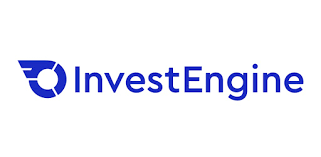You invest for one reason and one reason alone: to make money. While ISAs, savings accounts, and funds might provide you with steady and stable growth, you may well get the sense your money may not be working to its fullest.
While the general rule in investing is that more interest equals more risk, this is not entirely true. There are several high-interest investment options out there with a variety of risk profiles. However, generally, higher interest investments will come with other caveats - perhaps a restriction on the amount of money you can put in, or less flexibility and control.
We compiled a list of five different high-interest investments with varying risk profiles for investors out there to consider.
Discover the UK's leading investment platforms, whatever your investment goals. Click on a provider below to get started!
High Yield Bonds
High yield bonds or “junk” bonds offer some of the highest interest rates out there. But the reason for this high return on investment - or high yield - is simple: they are fundamentally a much riskier option.
Bonds - any bonds that you invest in - are effectively a temporary loan made to a company or organisation. The organisation is then required to make scheduled repayments to you along a previously agreed timeline and interest rate.
Investment-grade bonds might typically be linked to governments or higher-profile companies with low amounts of debt, and are therefore less secure. High yield bonds, however, are generally offered for companies which have a lot of debt or have a higher risk of failure. This means that if they default on their payments or collapse, your money could be at risk. However, if they succeed, the potential return on investment is enormous.
Funds like Invesco and M&G often offer high yield bonds or high yield bond funds, with annual performance rising as high as 8 or 9% in good years. However, high yield bonds are vulnerable at times of high market stress and could drop dramatically.
Venture Capital
Venture capital can be incredibly lucrative. The UK’s venture capital and private equity markets have performed exceptionally well in recent years, with the average annual returns to summer 2019 coming in at 20.1% (annual average over five years) and 14.2% (annual average over 10 years). For comparison, public markets (like the FTSE All-Share) returned 7.5% and 8.1% over the same periods. It’s estimated that in 2019, UK venture capital and private equity funds raised a staggering £47.5 billion in capital, with 39% of this coming from pension funds.
However, getting into the business of funding startups is not straightforward. For starters, most VC firms don’t publish instructions on how to invest online. Generally, venture capital investing is done on a business-to-business (B2B) basis. If you have a broker or a financial advisor, speak to them about private equity and VC - they may be able to help.
You can also look around yourself for any businesses who appear to be successful, but lack capital. Family and friends may be able to help in this regard, but it is always smart to run decisions past an experienced financial professional before making any moves.
High-Interest Savings Accounts
Savings accounts might not draw down the same kind of returns as the other investments on this list, but that doesn’t mean that you should ignore them. Not all savings accounts are created equal; and while interest rates are generally only under 1.5% per annum, you can find others which promise better returns.
HSBC, First Direct, and M&S Bank all offer accounts which currently sit at an impressive 2.75% (at the time of writing). However, all three require you to pay in a sum of between £25 and £300 per month (for HSBC and First Direct, the maximum is £250). They also require you, generally, to save every single month, and aren’t quite as forgiving with the interest rate if you skip months.
While this is by no means a high-interest investment in the traditional sense of the word, it is a low-risk alternative for those who are looking to save or invest on a smaller scale.
Buy To Let Mortgages
If you’d rather stay away from the financial markets and put your money into bricks-and-mortar assets, you might consider property.
Buy-to-let mortgages are one of the most popular financial products among property investors and an excellent way of generating additional “passive” income. It is estimated that there are more than 2.5 million private landlords in the UK, between them letting almost 5.5 million buy-to-let or shared properties. With a buy-to-let mortgage, you put down a higher deposit than you would for a residential mortgage (somewhere between 20 and 40% of the property price) and generally only pay back the interest every month.
However, fees are generally higher, as are interest rates. Assuming you can let out your property, however, the rent from your tenants would then pay off the interest. This hypothetically provides you with an additional monthly income stream to supplement any others (such as a salary or pension).
There are restrictions to consider, however. Buy-to-let mortgages are generally much less flexible than residential mortgages. Furthermore, lenders typically have an age limit somewhere between 70 and 75 (for when the mortgage period ends). Finally, at the end of the mortgage term, you will have to repay the lender the original value of the property in full (generally by selling it).
Currency Trading/Forex
Currency or foreign exchange (forex) trading is a great way to build your capital quickly, with average monthly returns somewhere between 1 and 10 per cent a month. It’s also a highly popular global investment strategy, with more than 9.6 forex traders around the world, including over 280,000 in the UK alone.
Forex trading is highly lucrative, but it is also risky, especially for those who are new to the game. Some traders decide to follow industry experts or spend time researching strategies beforehand. Most platforms, such as IG, FXCM, and Forex.com provide demo accounts where you get virtual money to test out the market and see how it works.
Education, however, is vital when it comes to forex trading. Generally, experienced traders also invest money into tools and programmes to follow specific markets or automate trades at certain hours. If you’re looking for a new obsession, forex trading might be for you - however, if you want something with reasonably low involvement, it may not be suitable.
These five different types of investment are wildly different from one another. They all come with varying profiles of risk and require different levels of knowledge. No single class or type of investment is “better” or more suitable than another - it’s important to remember that. Finally, before you do anything with your money, it may be worth speaking to an experienced financial professional who can provide you with specific advice, tailored to your situation.







